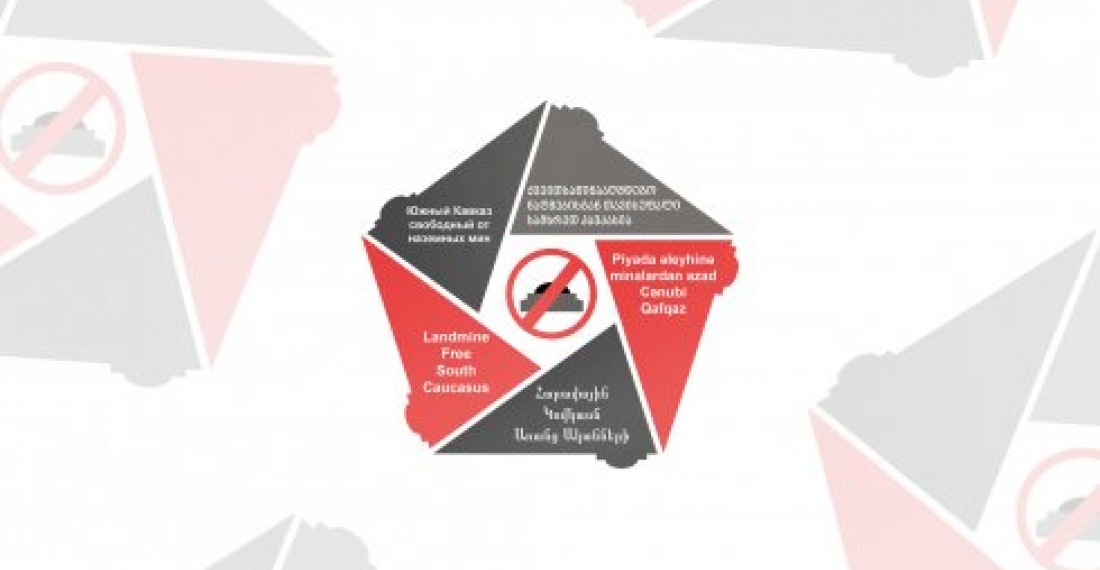- Armenia-Azerbaijan Strategic Expert Platform: Members emphasise the importance of the present moment for the South Caucasus and call for the momentum to be used for the long-term peace and prosperity of the region
- Thursday Interview: Dr. Anar Valiyev
- Food insecurity in Somalia has nearly doubled in the past year
- Türkiye evaluating potential measures in case of a US-Iran conflict
- European Parliament reaffirms support for Ukraine and EU Path
- EU moves ahead with Ukraine loan preparations despite Hungarian block
APRIL 4 - INTERNATIONAL DAY FOR MINE AWARENESS AND ASSISTANCE IN MINE ACTION

Statement by the campaign "Landmine Free South Caucasus"
In 2005, the United Nations declared the 4th of April as the annual International Day for Mine Awareness and Assistance in Mine Action. It stands:
'...for the continuation of the efforts of States, with the assistance of the United Nations and relevant organizations involved in mine action, as appropriate, to foster the establishment and development of national mine-action capacities in countries in which mines and explosive remnants of war constitute a serious threat to the safety, health and lives of the local civilian population or an impediment to social and economic development efforts at the national and local levels.'
This time last year, the day was marked for the first time in the South Caucasus by a region-wide campaign with a common theme and message. The LANDMINE FREE SOUTH CAUCASUS 2019 campaign raised awareness of the regional context of the remaining scourge of landmines and unexploded ordinance in the South Caucasus. It brought together government officials and representatives from national, international and non-governmental organisations at meetings in Baku, Yerevan and Tbilisi. And through a series of public events, it took the message of the risks associated with landmines to children, young people and other vulnerable groups living in areas still infected. By the end of the week-long campaign, it connected with over 400,000 people from across the region on social media.
You can read more on the 2019 campaign Landmine Free South Caucasus here
This year, the world is faced with another immediate concern - the COVID-19 pandemic. In light of this, activities for the LANDMINE FREE SOUTH CAUCASUS 2020 campaign, which were to be held over the next three months, will be postponed until a later date. For now, we would like to offer our support to all those that are working across sectors and around the globe, to tackle the virus, ensure the safety of our societies, and bring us back to a state of normality.
William Murray, Projects Officer for LINKS Europe and Coordinator of the campaign, stated:
"Due to the ongoing plight of the coronavirus pandemic, we have made the decision to postpone the activities of the LANDMINE FREE SOUTH CAUCASUS 2020 campaign until a more suitable time. As organisers of the campaign, we reiterate our commitment to our partners in the South Caucasus, and shall continue our efforts to coordinate the regional effort to raise awareness of the problem of landmines and other unexploded ordinance. Whilst some activities within the framework of the campaign will continue online, the majority will be rescheduled to a later date.
Despite the postponement of this year's campaign, it is important to remember that there are real issues related to landmines and unexploded ordinance (UXOs) in the South Caucasus, which affect people's lives on a daily basis. Since the 1990s, thousands of people in the region have been killed or injured as a direct result of explosive contamination, with the majority of these being civilians. Not only do these devices maim and kill, but they also limit the cultivation of land, constraining agricultural economies.
The Anti-Personnel Mine Ban Treaty (the 'Ottawa Treaty') was established in 1999, prohibiting the use, stockpiling, production, and transfer of anti-personnel mines, and obligating their removal and destruction. At present, 164 countries have formally joined the treaty; however, this does not include the three countries of the South Caucasus - Armenia, Azerbaijan and Georgia. We look forward optimistically to all three acceding to the treaty at some point in the future. Despite this, the LANDMINE FREE SOUTH CAUCASUS campaign celebrates the hard and dangerous work of those in the South Caucasus that strive every day to clear the region of landmines and unexploded remnants of war.
source: LINKS Europe (www.links-europe.eu)








